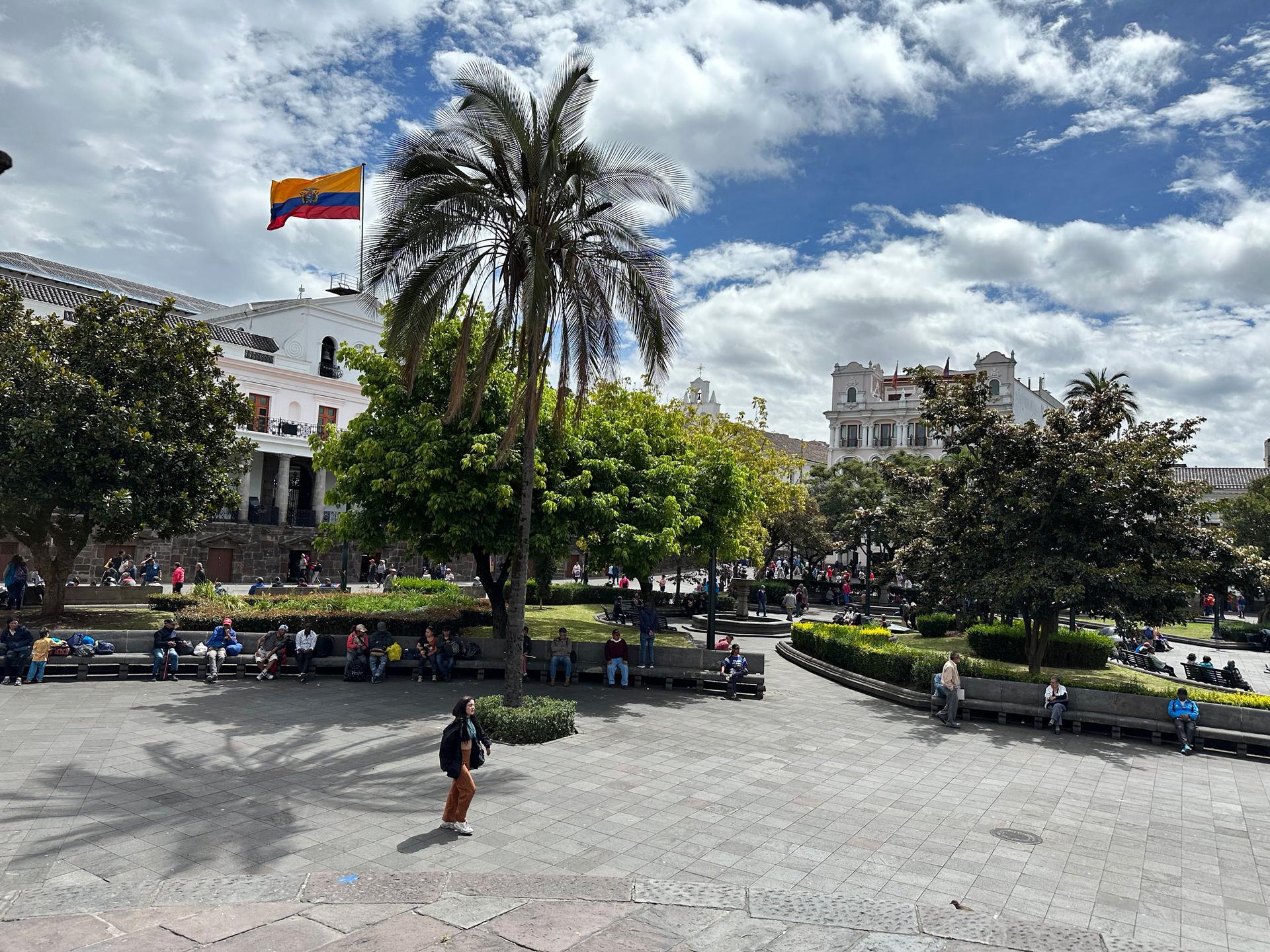Carla Ponson is proud about the new travel agency she just opened in the bustling neighborhood of La Carolina, in the Ecuadorian capital of Quito, with a few partners.
The deep blue walls still smell of paint and the desks are spotless.
Still, this is far from her dream job. Ponson is a 36-year-old mechanical engineer from Venezuela who moved there in 2018.
“I thought, with the curriculum that I have in the oil industry, five years in logistics, it’s perfect, I’m going to get there and they are going to welcome me with open arms,” she said. “But no, it has not been easy, even though I applied for many positions.”
Ecuador has a strong oil industry and Ponson believes she hasn’t been able to find a job in part due to discrimination against Venezuelans. She also thought it would be a more welcoming place to live with her wife, since gay marriage is legal in Ecuador, but she thinks she has also been a victim of homophobia.
“That’s when one realizes the challenges that you face as a woman, migrant, lesbian,” she said.
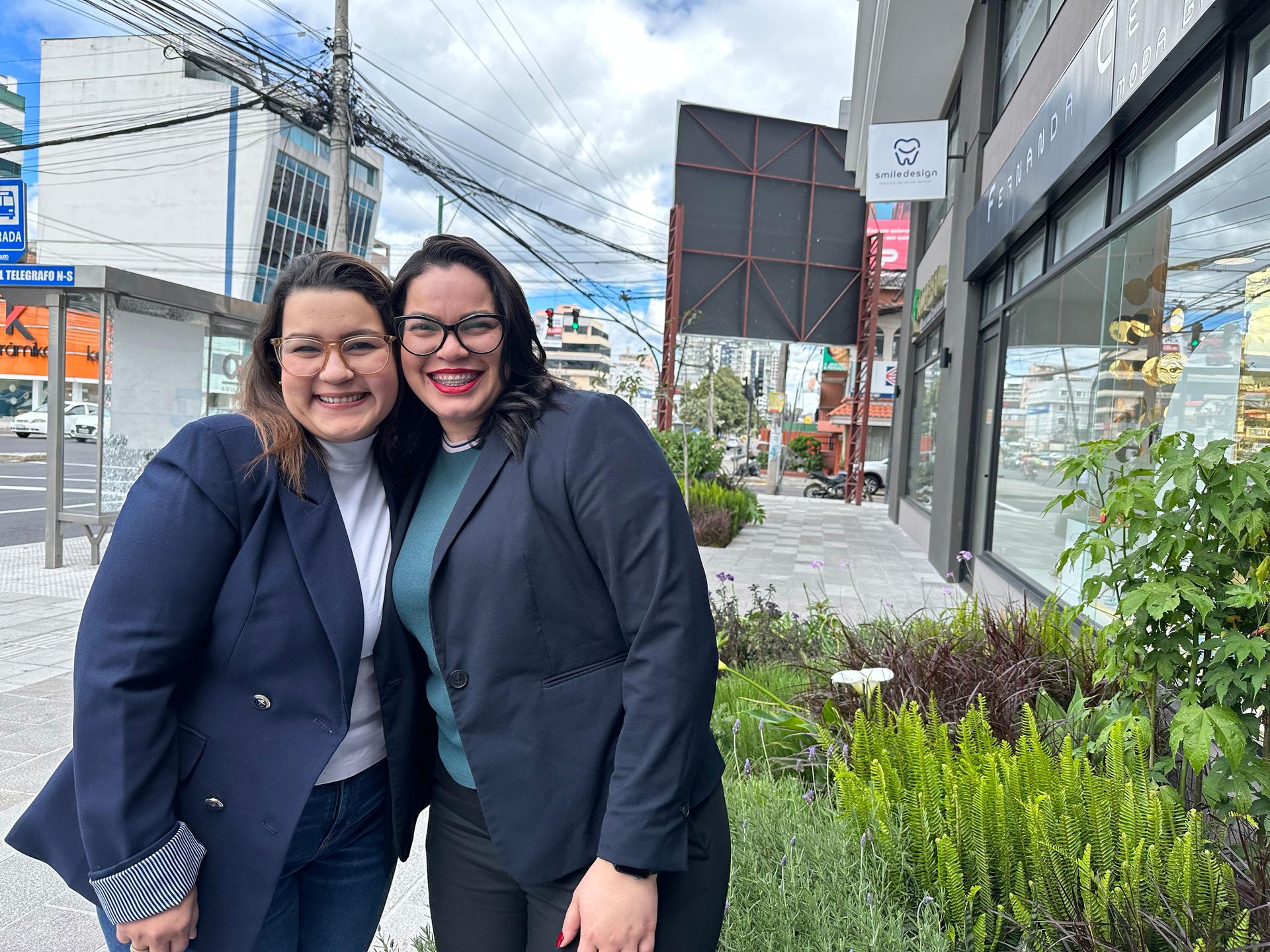
Ponson’s wife, Maria Swift, said she also experienced homophobia in three previous jobs in Quito. She used to be a lawyer in Venezuela, and now works selling insurance. She said she decided to keep her personal life private. “I haven’t felt the freedom to tell, or to bring Carla to an event, or to say openly, I am gay, Carla is my wife,” she said.
More than half a million Venezuelans have moved to Ecuador in the past five years. The small country is the fourth most popular destination for those fleeing the economic and political chaos of Venezuela, after Colombia, Peru and the US. But as Ecuador now faces its own political turmoil, discrimination against foreigners is on the rise, affecting gay and transgender Venezuelans particularly hard.
“For the LGBT community, the challenges are bigger,” said Danilo Manzano, the co-founder and executive director of Dialogo Diverso, an organization that provides legal, health and social services to LGBTQ people. Of the more than 54,000 people they’ve served in the past five years, 90% are Venezuelan migrants.
Manzano said that most Venezuelans choose to come to Ecuador because gay marriage is legal here, and health care is free. “If you are an LGBTQ person in Venezuela living with HIV, for sure you need to identify a country where they are going to provide you with the medication that you need,” he said.
But that doesn’t mean that gay people are openly accepted here, according to Manzano. The Catholic Church is strong in the country, and it tried to lead an opposition to the approval of same-sex marriage in 2019. Manzano had a tough time coming out as gay himself — initially, his parents didn’t accept it. But things changed when he didn’t have money to rent a space for Dialogo Diverso. “My father said, ‘you don’t need to go anywhere, use this,’” and offered up the first floor of Manzano’s childhood home for his work.
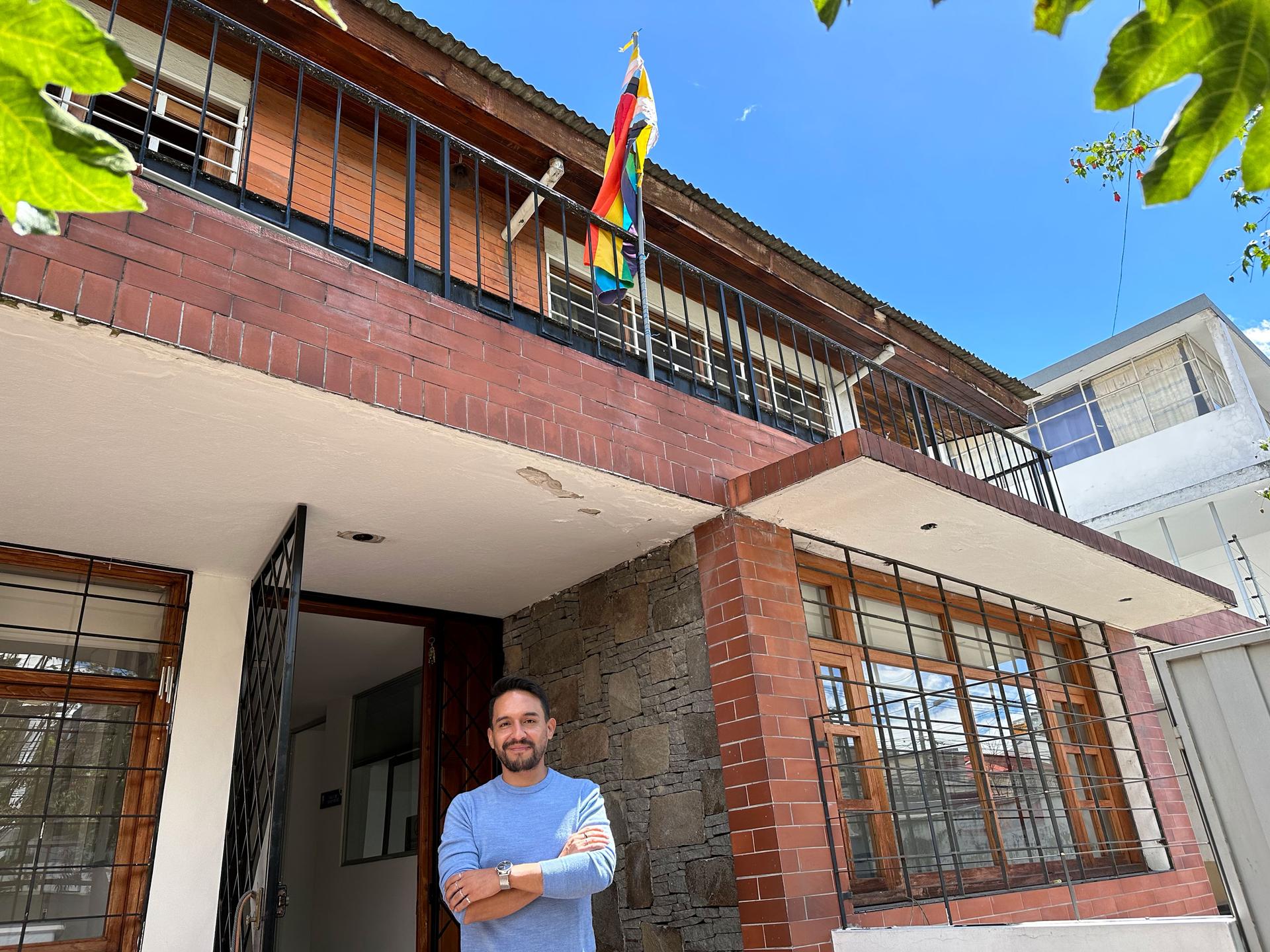
Violence on the rise
Ecuador has long been a relatively peaceful haven in South America. But in recent years, violence and narco-trafficking have exploded in this country of 18 million people.
Ecuador is dealing with political instability too. In May, President Guillermo Lasso disbanded the country’s National Assembly as he was facing impeachment proceedings. New elections will be held in August.
As the situation gets worse, Manzano said that gay and transgender people in Ecuador are often the target of attacks. “There is a lot of violence against the LGBTQ community, but if you are LGBTQ and you are [a] migrant, you are going to have double reasons to experience violence,” he said.
Ilda Rebek Torres, a 35-year-old transgender woman who moved here from Venezuela in 2019, said she has experienced a lot of violence in Ecuador. She first lived in Riobamba, about 130 miles south of the capital. “There, they would spit on me, I was kidnapped, assaulted, they almost killed me,” she said. “I had to sleep at gas stations when I first arrived because they wouldn’t allow me to sleep in hotels for being trans.”
Torres now lives in a small room she rents in Quito. The Venezuelan flag hangs behind her bed and around the room, she has sparkling dresses that she handsewed. She now works full-time for a travel agency and on the evenings and weekends gives dancing and modeling classes, and works as an actor. Her goal is to open her own modeling and acting school.
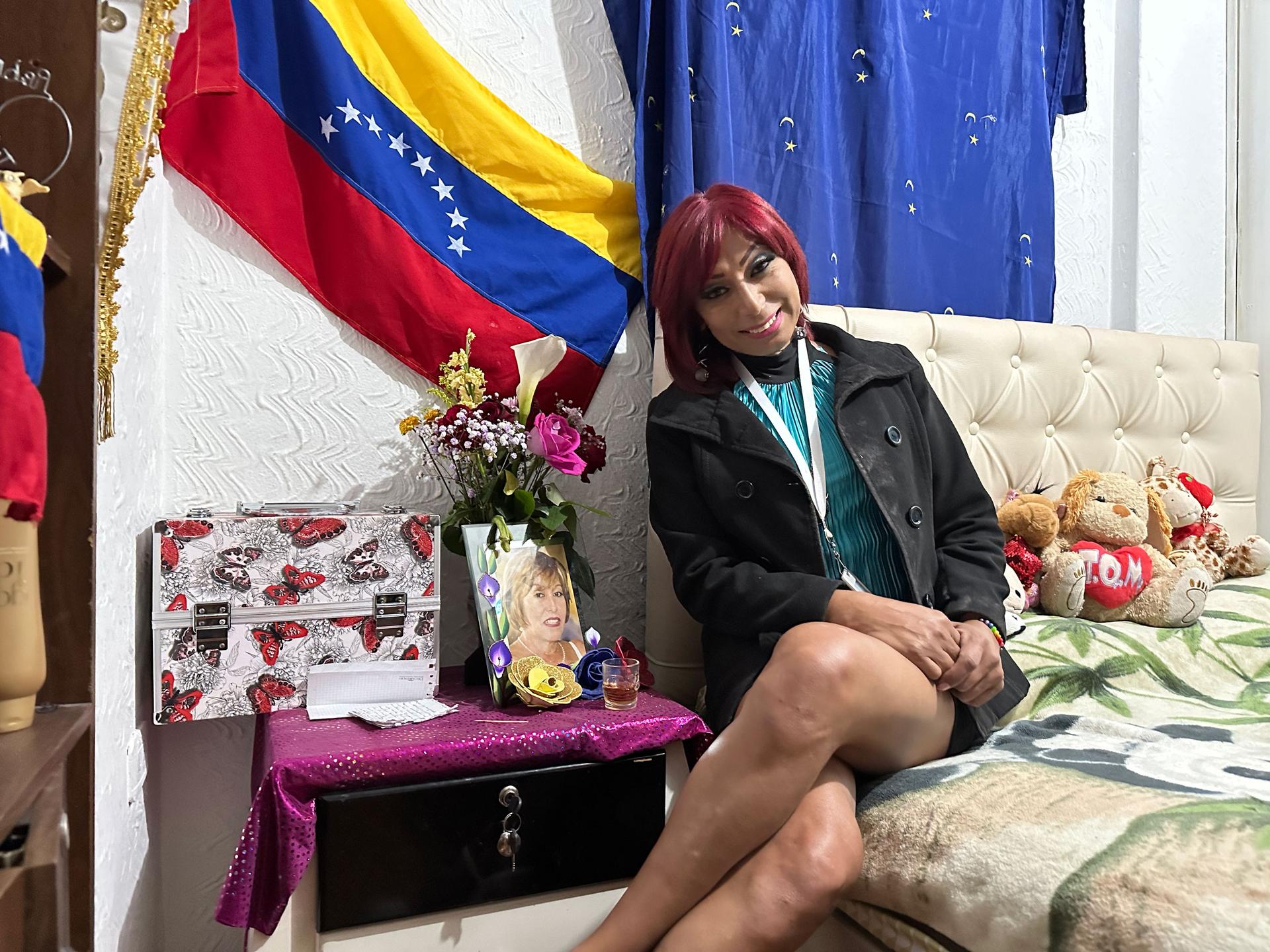
Dialogo Diverso helped her with medication, food, therapy and documentation. Torres just got her Ecuadorian ID and visa. Most Venezuelan migrants here lack documentation and Ecuador is trying to regularize everyone by the end of August. Her visa says she is a woman, but her ID says she is a man — an indication of inconsistencies with how Ecuador handles documentation requests from transgender people.
It’s not only LGBTQ Venezuelans who’ve had a tough time in Ecuador.
“I have the theory that people are not xenophobic, they are poor-phobic. They are afraid of the poor,” said Karla Sánchez, a Venezuelan migrant herself and the executive director of the nonprofit organization GRACE, or Give Refugees A Chance.
GRACE is based in the southern city of Cuenca and operates a clinic offering medical and psychological services to Venezuelan migrants.
Sánchez said that as the political and economic situation deteriorates in Ecuador, things are getting harder for Venezuelan migrants. Particularly because those with more resources came first, while the most recent arrivals are poorer. “It’s a small country, there are no resources,” she said. “And the poorer the country is, it’s worse the xenophobia, because there is less money to share. Of course it’s getting worse and worse every day just because the country is going downhill.”
Xenophobia is often driven by a perception here that Venezuelans often commit crimes, but that is not the case, explained Verónica Escobar, president of Fudela, a nonprofit that provides services to kids and teenagers, including Venezuelan migrants.
“There is a statistic that I just reviewed for a report that says that only 3% of those in jail are people of Venezuelan nationality, so it really is not true,” she said. As the situation deteriorates, she said that people are going out less. “And that, in turn, has an economic effect. Businesses don’t hire people, they fire people, and many of these positions were for Venezuelans as well,” she said.
Facing discrimination and poverty, many LGBTQ Venezuelan migrants have left Ecuador. Venezuelan Yeraldine Cabrera went to Ecuador in 2019, but moved to Miami, Florida, last year. She is gay and said she experienced homophobia and xenophobia in Ecuador. Even renting an apartment was hard.
“Just by hearing the Venezuelan accent, people would remove the ad, or tell us the place had been rented. Or we found signs: Venezuelans are not accepted,” she said.
Finding work in Ecuador was difficult as well. “We sold juices on the street, we sold empanadas,” she said. “The migration was quite strong, so there were about six empanada vendors on our corner and every week a new Venezuelan arrived, selling empanadas.”
Cabrera said things were particularly hard because she arrived months after a Venezuelan migrant stabbed his pregnant Ecuadorian partner to death in the city of Ibarra. “There was a strong revolution against Venezuelans, people would pour gasoline on them, throw fire. We lived in great fear,” she said.
Of the 7.3 million Venezuelans who have fled their country in the past five years, many have moved from one country to another, searching for better opportunities.
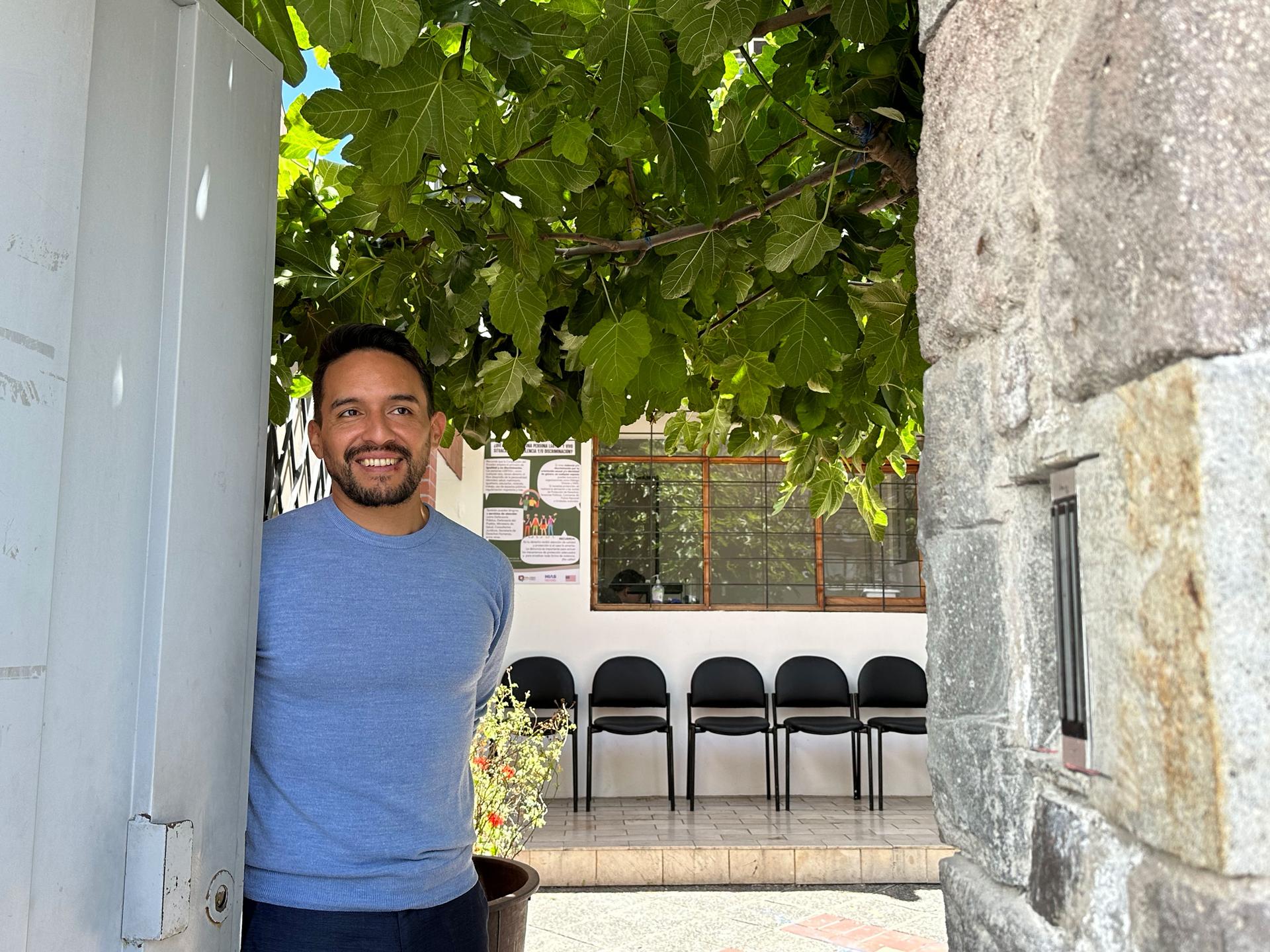
Manzano from Dialogo Diverso is now working to form a network with LGBTQ organizations from 10 countries in Latin America and the Caribbean. The idea is to offer LGBTQ migrants continued support as they move to other countries.
“They deserve to be treated with dignity, with respect, with love,” he said. “It’s not about charity, it’s about humanity.”
Editor’s note: Support for this story was provided in part by a PSC-CUNY Award, jointly funded by The Professional Staff Congress and The City University of New York.
The story you just read is accessible and free to all because thousands of listeners and readers contribute to our nonprofit newsroom. We go deep to bring you the human-centered international reporting that you know you can trust. To do this work and to do it well, we rely on the support of our listeners. If you appreciated our coverage this year, if there was a story that made you pause or a song that moved you, would you consider making a gift to sustain our work through 2024 and beyond?
